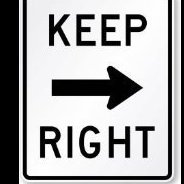Using US$?
-
Recently Browsing 0 members
- No registered users viewing this page.
Announcements
-
Topics
-
-
Popular Contributors
-
-
Latest posts...
-
62
JD Vance barred from English pub as staff mutinies over visit
Sorry, it´s not fascism to refuse to serve idiots. It´s defined as fair treatment. Hopefully Trump will be denied entrance at the airport. As many laws that he have broken so far, it should be a Red Notice on him. -
1
Middle East Israeli Forces Push Gaza Evacuations Amid Tragic Attacks
From the river to the Sea, push them into the Sea and be done with it. -
62
JD Vance barred from English pub as staff mutinies over visit
Well, as we all know Harris is woke, according to the MAGAs. Maybe her security detail had the nous to realise an assassination attempt in the English countryside was as likely as snow in the Sahara, and were not as cack-handed as Vance's people. -
10
UK MyCSP members
Thanks, I'll consider that as an option. Although I'm surprised at the amount of readers already logged into it. -
57
Report Thai Human Rights Stalemate: Arrests and Restrictions Worry US
Still irrelevant to this, do you have a problem understanding this very simple things...if you want to discuss your own anti taco agenda, the start your own thread..simple, I am surprised you haven't thought of it, so I am here to help you. -
57
Where can I buy a UK flag in Pattaya for my motorbike?
So Churchill was not involved with any killings under the old British Empire? I suppose he was not also responsible for the Black and Tans being sent to commit havoc in Ireland only to be sent scurrying back to England by Michael Collins in 1920 during the Irish war of independence.
-
-
Popular in The Pub

.thumb.jpg.3ee24d9400fb02605ea21bc13b1bf901.jpg)
.thumb.jpg.d9f3e54432a0ae65f4d5beb0d2d122ce.jpg)










Recommended Posts
Create an account or sign in to comment
You need to be a member in order to leave a comment
Create an account
Sign up for a new account in our community. It's easy!
Register a new accountSign in
Already have an account? Sign in here.
Sign In Now